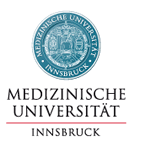Prof C Lass-Floerl
No more applications being accepted
Funded PhD Project (Students Worldwide)
About the Project
A. terreus is a fungal pathogen displaying both threats, persistence in the host and drug resistance (Amphotericin B). Recently we were able to show, that some strains of A. terreus are posaconazole resistant in vitro. Whether this correlates with in vivo is a matter of debate and needs to be investigated in more detail. The stability of in vitro resistance against posaconazole will be evaluated by the performance of EUCAST methodology; in vivo implications will be checked via animal models. Ex vivo samples will give insights whether this pathogen functions as persister or seems to be simply drug tolerant (against amphotericin B or posaconazole). Antifungal tolerance is associated with the failure of treatment and the relapse of many infections. However, unlike resistance, which is commonly measured using the minimum inhibitory concentration (MIC), tolerance is poorly characterized, owing to the lack of a similar quantitative indicator. This may lead to the misclassification of tolerant strains as resistant, or vice versa, and result in ineffective treatments. We will evaluate whether A. terreus species complex strains display tolerance, resistance and/or persistence in the presence of amphotericin B or posaconazole. We propose to study a framework for classifying the drug response of fungal strains according to new definitions that are based on the measurement of the MIC together with a recently defined quantitative indicator of tolerance, the minimum duration for killing (MDK). Fungal pathogens can adapt and survive in niches in the human host; there are major deficiencies in understanding the role of a fungal microenvironment in the onset of invasive diseases. Recent data obtained showed fundamental differences between A. fumigatus and A. terreus virulence and displayed that host pulmonary responses to A. terreus differ according to the immunosuppressive regimen used. A. terreus is rapidly phagocytosed, but conidia show long-term persistence in macrophages even in immunocompetent hosts. The role of persistence will be studied applying a perfused 3D human lung tissue model is designed to study A. terreus respiratory tract infections as close as possible to human pathophysiology and to simulate realistically as possible the dynamic and complex nature of biological responses.
Why HOROS?
• Individual supervision and monitoring (students have their individual thesis steering committee)
• A highly structured HOROS-specific educational programme
• Funded research exchange with international laboratories
• Retreats and social activities
• Guaranteed salary as suggested by the Austrian Science Fund for the proposed 3-years
• Health insurance and social benefits
• State-of-the art facilities and resources
Join HOROS: Requirements
The entry requirement is a full study completing degree (Master, Magister, Diploma, MD) in medical science, natural sciences or related disciplines. Students have to show academic excellence, scientific potential, flexibility, motivation and suitability for the research project.
Application
Please submit the following documents by email
(document in PDF format using "lastname_firstname.pdf") to [Email Address Removed]
• CV
• Filled application form
• Master/MD diploma
• Recommendation letter
• Abstract of diploma/master/MD thesis
We can only accept complete applications. Incomplete applications will not be considered!
PhD students are selected on the basis of their application materials and the selected candidates will be invited to a personal interview at Medical University of Innsbruck.
Selection process
• Verification that the application is complete and that the applicant fulfils all requirements
• Obtaining candidate evaluations from referees
• Evaluation by HOROS faculty members and ranking of candidates based on their qualifications, research experience, and future plans
• Invitation of preselected candidates for a hearing and personal job interview in Innsbruck on 05 July 2018 (justifiable expenses for travel and accommodation will be reimbursed)
• Final selection of stipendiates
• Start of work beginning of October

 Continue with Facebook
Continue with Facebook

